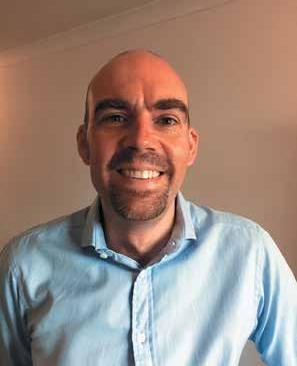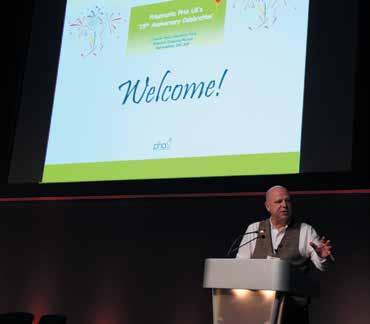Supporting brothers & sisters When a child or young person is diagnosed with PH it has an impact on the whole family. The child’s brothers and sisters may be affected in all sorts of ways. Here paediatric clinical psychologist at Great Ormond Street Hospital Vicky Kelly talks to Steph Pollard about siblings and considers some ways to support them too.
H
aving a brother or sister with a chronic condition like PH can affect a child in many ways and it is normal for a young person in this situation to experience a wide array of difficult and conflicting emotions. They may feel worried and sad about their sibling’s illness but also jealous of the ‘extra attention’ they perceive their sibling to be getting and angry about how disruptive the illness is to their family’s life. Research suggests that these children might be, therefore, more vulnerable to developing emotional difficulties such as anxiety or depression and also behavioural difficulties, as they try to elicit more attention from their parents and express their anger through tantrums. However, it is also important to note that some siblings develop stronger resistance to emotional difficulties later on in life because they have had to develop coping strategies to manage difficulties earlier than they might have done otherwise. Thus they can become more emotionally resilient adults. Vicky says: “One of the most important things for a parent to do is let their other child know that every
WINTER 2015 emphasis 34
feeling they have is ‘normal’ and to provide a safe space for these emotions to be talked about in order to help make sense of them. “Siblings often worry about burdening their parents further or feel ashamed about what they think or feel in relation to their brother or sister. It is perhaps even more important for parents to continue to regularly let them know how unconditionally they are loved no matter what they say or do and that any feeling is okay and can be talked about in an open and supportive way.” Lots of different things can have an impact on brothers and sisters of a child with PH. Regular trips to hospital with their family and witnessing their sibling waiting for and under-going tests and treatments can be just as traumatic for brothers and sisters as they are for the child with PH. The, often unavoidable, time out of normal life can also disrupt the development of friendship groups for siblings, as well as the child with PH, which can lead to difficulties with their peer group. On the other hand, if they don’t go with their family on hospital visits,
they can feel left out, and might mistakenly think they are missing out on a ‘fun’ day out in the city. Not knowing what the visit actually involves, can also lead to further anxiety as, depending on their age, they might imagine something far worse happening to their brother and sister at hospital. One of the most difficult things for parents to manage is dividing their time and attention between all their children when one is ill. Good intentions to spend more time with the other children can end up not happening, through no fault of the parent, as the demands of everyday life and managing PH, dominate the family’s life. Vicky works as part of the multidisciplinary PH team at GOSH and says that in assessing the emotional support needed by any young person with PH, she always tries to involve the whole family in initial meetings. “It is very important to assess all the potential needs for support. We work collaboratively with families and local services to try and coordinate support for the whole family where needed.”


















